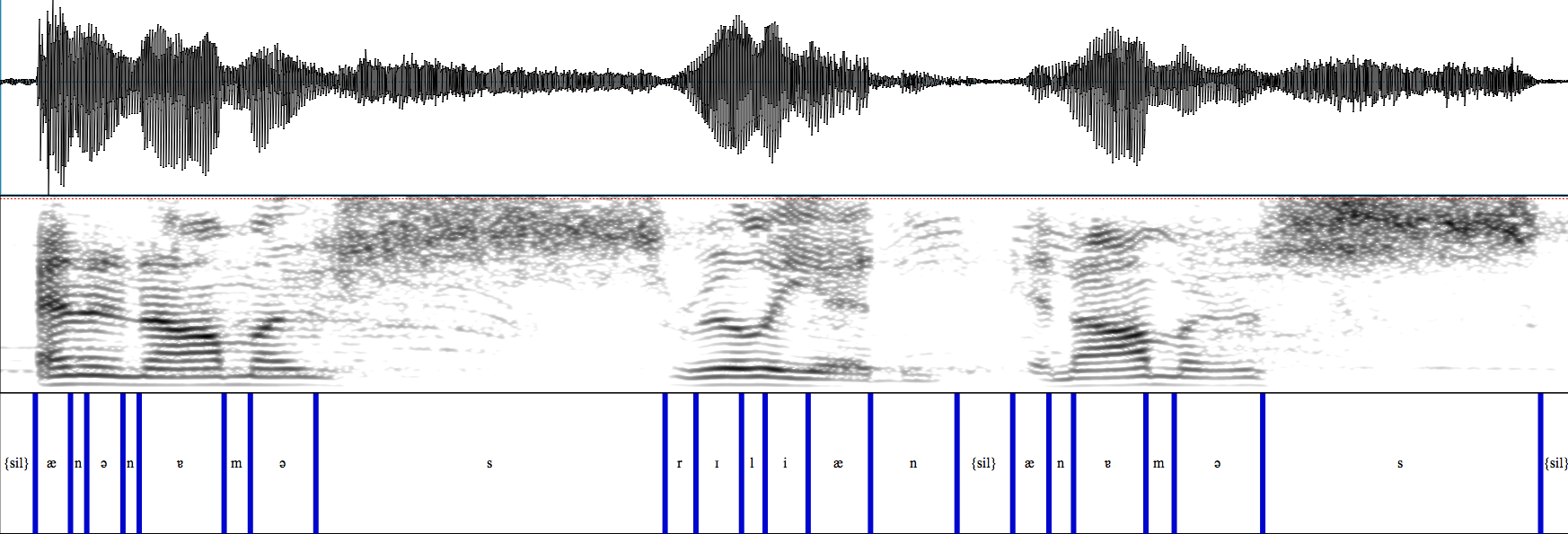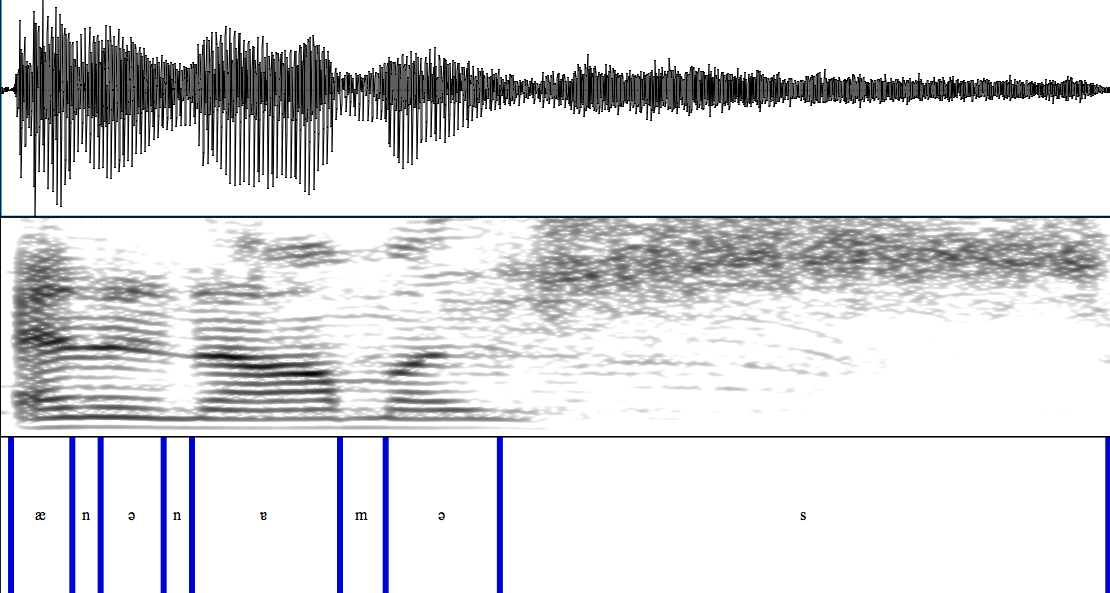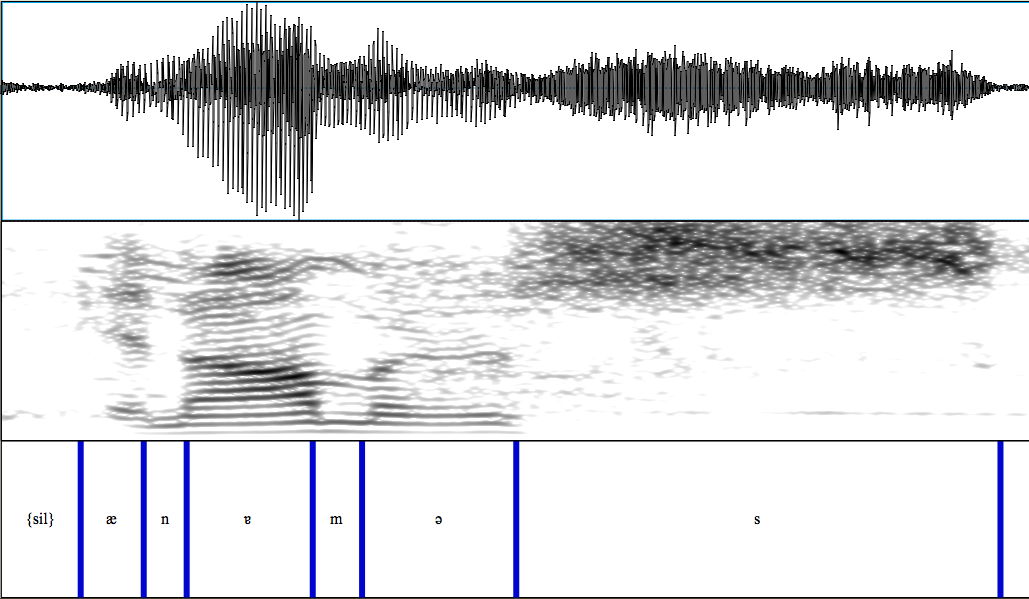Anonymous in Montana
« previous post | next post »
There's been a certain amount of media coverage of President Trump's difficulties in pronouncing the word "anonymous" at a rally on Friday in Billings, Montana:
Donald Trump struggles with the word 'anonymous' during Montana rally pic.twitter.com/iIALVSHbSM
— The Independent (@Independent) September 7, 2018
But this was the only example of a similarly extreme tongue-tangle in this speech, which lasted over an hour — so I feel that the attempts to depict this in clinical terms (e.g.Jack Holmes, "The President's Broken Brain Was on Full Display in Montana", Esquire 9/7/2018) are unwarranted.
Then why did the phrase "an anonymous coward" hit Trump like a tongue twister? Try saying "an anonymous" three times fast, and I think you'll start to understand.
A phrase-by-phrase transcript of the whole Billings speech can be found here. The context for the "anonymous" tongue-tangle is below:
The so-called resistance is angry because their horrible ideas
have been rejected by the American people, and it's driving them crazy.
Crazy.
They're the ones, honestly, that have been driven crazy.
The latest act of resistance
is the op-ed published in the failing New York Times by
an anomous- really an ominous-
gutless
coward. You just look.
He was- uh nobody knows who the hell he is, or she,
although they put he, but probably that's a little disguise. That means it's she.
Here's the trying-to-say-"anonymous" passage by itself — I've tried to give an aligned transcription in phonetic terms, although this is one of the many cases where symbolic phonetics is not really up to the job:
The first try:
What's going on?
Well, his target pronunciation seems to be something like
/æn.ə'nɐ.nə.məs/
or with reduction of the vowel and resyllabification of the /n/ in "an", maybe
/ə.nə'nɐ.nə.məs/
And this has the repetition of similar segments in different patterns that is one of the factors leading to tongue-twister effects. Thus Carolyn Wilshire, "The 'Tongue Twister' Paradigm as a Technique for Studying Phonological Encoding", Language and Speech 1999:
Experiment 1 demonstrated that the inclusion of highly similar phoneme pairs in the target sequence also had a significant error-inducing effect. In many current network models of phonological encoding, similarity effects are attributed to the operation of feedback activation; highly similar phonemes activate one another as a result of a feedback via their many shared feature representations (e.g., Dell, 1986, 1988; Stemberger, 1985, 1990). This mutual activation effectively increases levels of activation in competing phonemes, and thereby increases the likelihood of confusions between them. This account provides an elegant explanation for the overall error-inducing effect of similarity, as well as its selective effect on contextual errors involving the similar phonemes themselves.
Such effects are probabilistic, which is why we can usually say things like "an anonymous coward" (at least once) without breaking down, but get tangled up from time to time. I've certainly experienced such tangles occasionally myself.
So it's fair to make low-key fun of the president in this case, but let's not get carried away with clinical interpretations.



JB said,
September 10, 2018 @ 6:50 am
An anomalous, really an ominous gutless coward?
Ralph Hickok said,
September 10, 2018 @ 7:19 am
I have no problem at all saying "an anonymous" three times fast. It doesn't seem even close to being a tongue-twister.
[(myl) As I think I mentioned, tongue twisting is a stochastic process, varying from person to person and trial to trial. In the Wilshire paper cited, the error percentages are all fairly low:
So maybe you're just special, or lucky. But you might try (1) reducing the vowel in "an"; repeating the sequence out loud, not just to yourself; talking faster.]
Tom Dawkes said,
September 10, 2018 @ 9:10 am
This reminds me of learning the pronunciation, when a very small child of 'anemone', as /ə'nenəmi/. I still find it comes naturally, and I find /ə'neməni/ slightly awkward even now.
Rick Rubenstein said,
September 10, 2018 @ 7:02 pm
If the Democrats take the House, they're planning to introduce a measure prohibiting ominous anomalous "anonymous" pronunciations as part of an omnibus spending bill.
tangent said,
September 11, 2018 @ 12:41 am
Tom Dawkes, I actually acquired it as /anenome/ and had that for years before noticing I was being non-standard.
maidhc said,
September 11, 2018 @ 3:54 am
Just yesterday I found myself unable to pronounce "Pyrenees", a word that I have never had any problem with before. And YouTube has loads of videos of professional broadcasters flubbing the most common words, even including their own names.
Add to that the contention by some people, brought out on previous similar occasions, that Trump may have denture issues that sometimes affect his speech.
If this was the only problem he had in talking for over an hour, I don't see any reason to consider it significant.
Michael said,
September 11, 2018 @ 8:07 am
I've always had some trouble with these sequences of unstressed syllables and nasals, such as "an unending…" or "an anonymous". It doesn't happen every time but I do often trip over my tongue trying to say these words, so no surprise here.
Lane said,
September 11, 2018 @ 1:44 pm
Third person in this short thread who struggles with "anemone" and especially "an anemone".
Jerry Friedman said,
September 11, 2018 @ 5:10 pm
I don't have much problem with "anonymous" or "an anemone" or things like that. Now, "The physicists edited it," on the other hand…
Robert said,
September 12, 2018 @ 7:41 am
An enemy anemone hath done it.
Chris Button said,
September 12, 2018 @ 8:00 am
@ Tom Dawkes
Chris Button said,
September 12, 2018 @ 8:03 am
And once more with better formatting (what happened to the preview function btw?)…
@ Tom Dawkes
Probably influenced by familiarity with "an enemy" as well and then only differing via the same subtle difference in syllabification found in pairs like "an aim" and "a name".
@ Mark Liberman
From the earlier referenced thread:
I very much concur since no phoneme is going to remain unaffected by its environment and the IPA diacritics even when properly attempted to be applied (often not the case in less technical works) don't always suffice and sometimes need to be piled on top of one another. At a minimum we need to cover the entire syllable as the smallest naturally intuitive unit of speech and even then still account for any spreading across syllables. Any thoughts on a better representation?
Rodger C said,
September 13, 2018 @ 6:57 am
A lot of us have heard Episcopal priests get tangled over "innumerable benefits." I wonder how different the pronunciation was in Cranmer's time for him to have perpetrated that.
By the way, I recall that as a small child, the first time I saw "anemone" I pronounced it "annie-moan." My mother immediately corrected me. I probably remember this so distinctly because it was one of my introductions to the mysteries of English spelling.
David Marjanović said,
September 14, 2018 @ 8:33 pm
Ah, the International Phonemic Alphabet. :-)
You happen to be working on languages with obvious syllable boundaries. Getting phonologists to agree on how English (for example) delimits its syllables is a major headache.
Chris Button said,
September 14, 2018 @ 9:35 pm
@ David Marjanović
Actually by "intuitive", I was not referring to where theorists apply boundaries but rather the syllable count that speakers can naturally sense.
Nonetheless, on the topic of English syllable boundaries, I believe that John Wells pretty much settled the debate back in 1990 with his "Syllabification and Allophony" article. Personally I find it strange how his approach is not universally accepted since his challenge to the CV.CV paradigm also helps account for how non native speakers may then re-syllabify English (or a similarly structured language) in such a manner (e.g. "a.dapt.ing" becoming "a.dap.ting" or more severely "a.da.pV.ting" depending on the phonotactic constraints) to cause quite different surface realizations even when the phonemes may be undifferentiated in a broad IPA transcription.
David Marjanović said,
September 15, 2018 @ 11:29 am
Ah, OK.
The PDF I linked to shows that it fails in a few cases, like the fact that latex has both prefortis clipping and an unreduced unstressed vowel.
Chris Button said,
September 15, 2018 @ 4:19 pm
@ David Marjanović
To quote John Wells from a couple of his blog entries:
Philip Taylor said,
September 16, 2018 @ 11:57 am
As a native speaker of <Br.E:gt;, I have no problem with repeating "an anonymous" any number of times, out loud or to myself. But perhaps where I differ from many speakers of <Am.E:gt; is that I give most of the vowels full value — for me, "an anonymous" is rendered as /æn əˈnɒnɪməs/. /ən ənɒ:nəməs/ repeated would almost certainly cause me to stumble.
David Marjanović said,
September 16, 2018 @ 2:34 pm
Indeed it doesn't follow from Wells's syllabification theory, so he has to tack the unrelated hypothesis on that involves vowel reduction and word boundaries but not syllable boundaries.
It does follow from Bermúdez-Otero's syllabification theory.
Chris Button said,
September 16, 2018 @ 2:58 pm
@ David Marjanović
He's not tacking anything on here. He's use of the word "mysteriously" is simply referring to this well-known phenomenon that does not impinge upon his theory of syllabification.
Chris Button said,
September 16, 2018 @ 3:13 pm
Essentially, regardless of whether you go with "lat.er" and "lat.ex" or alternatively "la.ter" and "la.tex", the simple fact of the matter is that the "t" is tapped in "later" but not in "latex".
Bloix said,
September 19, 2018 @ 2:09 pm
"annie-moan."
In the years between the publication of the first Harry Potter book and the first movie, lots of children concluded that the name of the heroine is Hermie-own.
PS – Trump's latest on Florence:
"one of the wettest we've ever seen, from the standpoint of water"
I look forward to the LL post showing (with charts and graphs) that this statement is not evidence that he is a moron.
Rodger C said,
September 20, 2018 @ 7:12 am
The cursed shades
All dwell in Hades,
But saved alone
Is Hermione.
She dwells, I hope,
With Penelope,
Under a proscenium
Resembling the Athenaeum.
As for Trump's repeated remarks about the yugeness and wetness of Florence, one recalls that there'd been some talk that climate change was responsible for making F bigger and wetter than previous hurricanes. I suppose this was conveyed to Trump and that we now know what he got out of it.
David Marjanović said,
September 22, 2018 @ 9:48 am
And your objection to Bermúdez-Otero postulating two rounds of syllabification to account for this is?
Um. The fact that the 25th amendment should have been used on him long ago does not mean that every single one of his public statements is evidence for that fact. The one treated here, for example, isn't.
Chris Button said,
September 23, 2018 @ 10:11 pm
@ David Marjanović
What does it gain you? Right now we have a simple rule that the flapping/tapping/t-voicing does not occur if the following vowel is a full vowel within a word, but does occur across a word boundary in close juncture. Note Wells' use of the word "somewhat" since while one would probably expect there to be no difference between words and phrases in such an environment, it is nonetheless not that strange to see different behavior in the two environments. Compare how English has the option of dropping the word accents (i.e. pitch variations) on stressed syllables across a phrase providing that they are retained on the onset (usually first) and nucleus (usually last), which incidentally accounts for the famous albeit horribly misnamed "stress clashes", whereas a language like Spanish would more generally (but by no means exclusively) be expected not to make use of such an option to the same extent since it has no alternative overt signposting akin to the schwa reductions of English.